Drug offenses can be some of the most confusing criminal charges on the books. Between different schedules of drugs – ranging from Schedule I to Schedule V – and differences between misdemeanor and felony charges on what sounds like the same offense, it’s easy to get lost in the lingo. Without an attorney to guide you through the process, you might even be bullied or tricked into pleading to a drug charge you could easily defeat in court. Read on to learn more about the most common drug offense – possession.
Possession of a Controlled Substance
The most common drug offense and allegation is possession of a controlled substance. Drugs and controlled substances are regulated at the state and federal level, but it’s usually the state – in our case the State of Arkansas – that files criminal charges. If you’re convicted on a possession charge, you could face penalties ranging from fines and fees to time in a federal prison. That’s why it’s important to contact an attorney as soon as you’re arrested on any allegation of possession.
Controlled substances are divided into “schedules” according to how addictive the drug is deemed to be by the federal government (not, necessarily, by the scientific or health communities). Schedule I (1) is the highest classification of controlled substances, including substances like marijuana, heroin, Ecstasy (MDMA), and LSD. Schedule II (2) includes substances like cocaine, oxycodone, and morphine. Schedules III (3), IV (4), and V (5), meanwhile, include many drugs found in common prescription and over-the-counter medications.
Typically, people are arrested for possession of Schedule I and Schedule II controlled substances, although charges could be filed for possession of Schedule III-V drugs if they’re being stockpiled for the manufacturing of other controlled substances.
Different Types of Possession Charges
When it comes to possession charges, there are two basic types: actual and constructive possession. Active possession means the alleged offender has a quantity of controlled substances in their possession and control. Constructive possession, on the other hand, means that an alleged offender has knowledge of and the ability to possess a controlled substance.
For example, if an alleged offender was found to have marijuana in his or her pockets or hand when they were arrested, actual possession charges could be filed. If, on the other hand, four people were riding together in a car that contained marijuana in the center console and paraphernalia elsewhere in the car, all four could be charged with constructive possession.
An alleged offender can also be charged with possession of “precursors” or paraphernalia such as pipes, syringes, rolling papers, and other tools used for the consumption of illegal substances. In any of these cases, it’s important to contact an attorney immediately to start constructing your defense. Alleged offenders have rights – and an attorney can help you protect yours.
Possession: Felony or Misdemeanor?
Whether an alleged offender is facing a felony or misdemeanor charge usually depends on the quantity of the controlled substance in their possession. Other factors that determine whether you’re facing a felony or misdemeanor might include a charge of possession with intent to deliver or other dealing and trafficking charges.
For marijuana, for example, the State of Arkansas allows for the prosecution of an alleged offender who was in possession of less than 14 grams under a simple possession misdemeanor charge. Any amount over that, however, will likely be prosecuted as a felony. For other controlled substances, specifically cocaine and methamphetamine, any quantity could be prosecuted as a felony.
What to Do About a Possession Charge
If you’ve been charged with possession – or any drug offense – call an attorney immediately. When you need professional, experienced representation that won’t back down from defending your rights, you need the Bobby Digby Law Firm. We’ll be with you every step of the way and put our expertise to work for you. Call or visit us today for a consultation!

